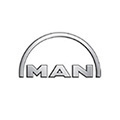09_18 Suggested changes to withholding tax – new obligations for taxpayers that make payments to other countries
A draft bill amending the Corporate Income Tax Act (among other things) was published in late August 2018. It has been referred to as a “tax revolution” due to the scope and impact of the suggested changes. As indicated in the statement of reasons for the draft bill, the changes are supposed to simplify and tighten the screws on the Polish tax system. It must be noted, however, that the bill involves numerous provisions that might lead to the emergence of new obligations for business entities, especially those operating in the automotive sector.
Given the nature of the Polish automotive industry, local businesses frequently face challenges related to payments of licence fees to other countries, e.g. for the use of experience and know-how in development, design and production, as well as the use of trademarks and engineering, consulting or controlling support services.
Thus, it is particularly important to analyse the proposed changes in withholding tax. As a general rule, payment of specific fees to a foreign entity might entail an obligation to calculate, collect and pay withholding tax.
As of today, the withholding tax rate for licence fees is 20% (pursuant to the Corporate Income Tax Act). Nevertheless, the tax rate might be determined otherwise in a relevant double taxation avoidance treaty (such treaties, depending on the category of fess, usually involve a withholding tax exemption, or set the maximum withholding tax rate to anywhere from 5% to 15%). In this case, the taxpayer pays tax at the amount arising from the provisions of a relevant double taxation avoidance treaty.
The draft bill sets out that, if the total amount, to which withholding tax applies, payable to a single business partner exceeds PLN 2,000,000:
- the taxpayer will be obliged to withhold tax at the rate arising from applicable provisions of the Corporate Income Tax Act (i.e. 20% in the case of licence fees), with no option to apply an exemption or the rate specified in the relevant double taxation avoidance treaty.
- if the amount (i.e. the amount of paid dividend or licence fee) cannot be unambiguously determined, it will be assumed that it is PLN 2,000,000;
- refunds of withholding tax, at the amount corresponding to the difference between the actually paid tax and the amount arising from a relevant double taxation avoidance treaty, will only be possible at the taxpayer’s request, and on condition that relevant documents are provided within six months of the request submission date;
- withholding tax settlements on conditions similar to the existing ones (i.e. applying an exemption or the rate specified in a double taxation avoidance treaty) will only be possible if the business unit manager submits a relevant statement, along with necessary documents.
The adoption of these changes in relation to withholding tax might affect the liquidity of Polish businesses that make payments (including licence fees) to foreign entities.
This risk is particularly important in the case where cooperation agreements with foreign partners stipulate that the economic burden related to withholding tax lies on the payer of income (i.e. the Polish taxpayer) (known as the gross-up clause), which is a common practice. In that case, the tax authorities have indicated that the withholding tax amount should be calculated on a grossed-up basis, which translates, in practice, into a higher amount of withholding tax (in other words, the income paid to a business partner has to be grossed up).
To sum up, in case the suggested changes come into effect, businesses that pay licence fees (among other things) to foreign entities might have to make special preparations in order to meet the new withholding tax requirements.
Michał Zwyrtek, Director at PwC’s Legal and Tax Department
Dawid Długosz, Senior Consultant at PwC’s Legal and Tax Department
Hubert Gregorski, Consultant at PwC’s Legal and Tax Department
























































